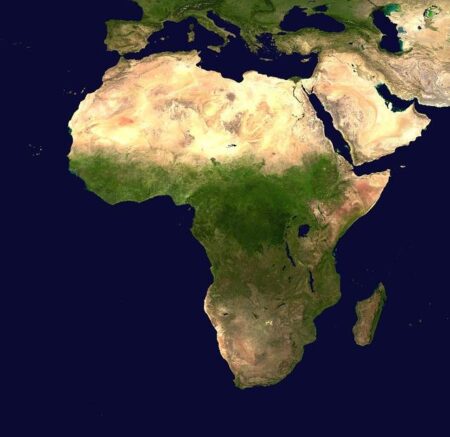Comoros Marks 50 Years of Independence Amid Ongoing Mayotte Sovereignty Dispute
As the Union of the Comoros commemorates half a century since its independence, it reflects on a complex history marked by political challenges and an enduring territorial dispute with Mayotte-an island that remains under French control. Since gaining sovereignty from France in 1975, Comoros has navigated internal political intricacies alongside external diplomatic pressures. Despite sharing cultural and historical ties with the other islands in the archipelago, Mayotte opted to remain a French overseas department following a divisive referendum in 1974. This unresolved conflict continues to shape national identity debates and regional relations as Comoros celebrates this significant anniversary. This article delves into the importance of this milestone while examining ongoing tensions surrounding Mayotte’s status.
Half a Century of Independence: Celebrations Shadowed by Mayotte’s Status
Across Ngazidja (Grande Comore), Mwali (MohĂ©li), and Nzwani (Anjouan), vibrant festivities marked fifty years of freedom, showcasing rich cultural traditions and collective pride among citizens united by their shared heritage. However, beneath these jubilant occasions lies an unresolved issue: Mayotte’s continued affiliation with France remains a source of division that complicates efforts toward full national unity.
Though geographically part of the Comorian archipelago, Mayotte’s decision to maintain its French ties fuels persistent demands from many Comorians for reunification with what they consider their rightful fourth island.
This territorial disagreement carries profound socio-economic implications:
- Desire for Reunification: A widespread aspiration persists among many citizens advocating for reintegration with Mayotte.
- Economic Disparities: The separation intensifies resource shortages on mainland islands while fostering economic dependencies linked to French support.
- Cultural Divergence: The strong influence of French governance in Mayotte challenges efforts to preserve authentic Comorian customs across all islands.
Balancing celebration with critical reflection is essential as diplomatic efforts continue seeking viable solutions. International legal frameworks combined with regional cooperation remain pivotal tools for addressing this multifaceted dispute while honoring deep-rooted historical connections.
Historical Context and Political Dimensions Behind Mayotte’s Position
To grasp the origins of this conflict, one must revisit key moments during decolonization when divergent choices shaped today’s geopolitical realities. While most islands voted overwhelmingly for independence from France in 1975, residents on Mayotte chose differently-opting decisively to retain their association with France due to economic considerations, administrative preferences, and broader geopolitical influences at play during that era.
This divergence has resulted in stark contrasts between territories:
| Aspect | Mayotte | Mainland Comoros Islands | |||||
|---|---|---|---|---|---|---|---|
| Status | A French Overseas Department since 2011 | An independent nation since 1975 | |||||
| Economic Investment & Infrastructure Development | Significant funding through EU programs & direct support from France; ongoing modernization projects. | ||||||
| Largely dependent on limited foreign aid; infrastructure growth constrained by financial limitations. | |||||||
| Demographic Composition < br/> | A diverse population bolstered by migration flows within the Indian Ocean region. < br/> | Predominantly homogeneous ethnic groups rooted deeply in indigenous communities. | |||||
| International Recognition < br/> | Recognized globally as integral territory within France. < br/> | Faces diplomatic hurdles asserting claims over disputed territory. | |||||
| Strategic Importance | Crucial maritime location along Mozambique Channel attracting international interest.< / td >
The disparities between development levels highlight deeper issues tied to sovereignty claims and cultural identity preservation. Additionally, strategic significance heightens international attention-with France maintaining military installations supporting security interests along vital Indian Ocean trade routes-further complicating bilateral relations between Paris and Moroni. Pathways Toward Constructive Engagement and Resolution Between Comoros and Mayotte AuthoritiesResolving this protracted dispute requires innovative strategies emphasizing mutual respect alongside practical solutions grounded firmly in principles such as self-determination: An effective approach could involve establishing a permanent bilateral commission dedicated exclusively to fostering open dialogue between representatives from both sides. Such an entity would serve as mediator facilitating transparent negotiations while exploring collaborative projects benefiting populations throughout all islands-for example:
The active participation of civil society organizations-including human rights NGOs-and community leaders can enrich discussions ensuring diverse perspectives contribute equitably toward outcomes. A commitment to clear communication channels aligned with international mediation standards will be crucial for rebuilding trust amid decades-old grievances. Looking Forward: Charting A Renewed Future For The Union Of The Comoros Beyond Territorial ChallengesCelebrating fifty years free from colonial rule places Comoros at an important juncture where hopes for unity intersect complex realities imposed by lingering disputes over sovereignty concerning Mayotte. This landmark anniversary not only honors resilience but also underscores persistent obstacles affecting national cohesion formation alongside regional stability. Moving forward:
Ultimately achieving lasting peace will demand patience paired with inclusive diplomacy recognizing both historical legacies plus contemporary aspirations shaping geopolitics across the Indian Ocean region today. By embracing these guiding principles throughout its next fifty years journey ahead, Comoros aims not only strengthen internal solidarity but also contribute positively toward wider regional harmony amid evolving global dynamics. |







